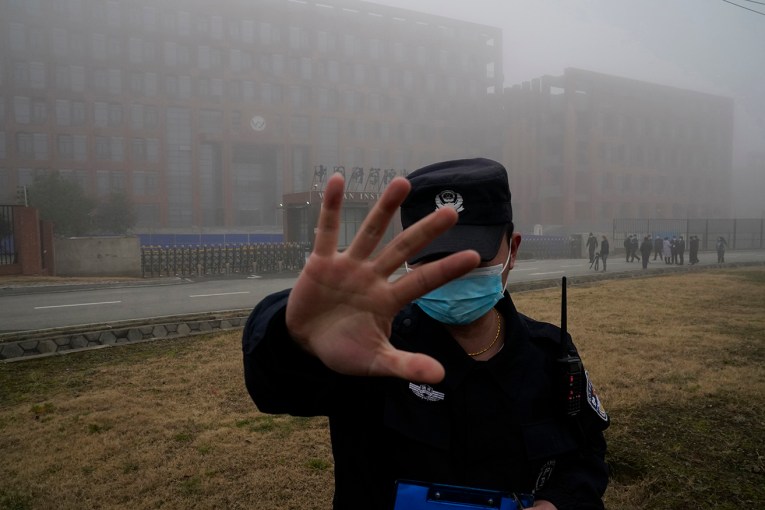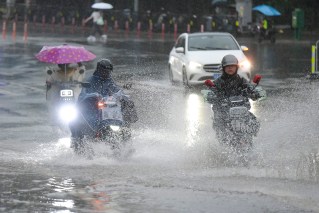Australian lobsters may be latest victim of China trade spat
The threat of Australian lobsters dying at Chinese airports has spooked local producers and escalated trade tensions between Beijing and Canberra.
Tonnes of live lobsters were stranded at Chinese airports and clearance houses while waiting to be inspected by Customs officials at the weekend.
Trade Minister Simon Birmingham said the Government was seeking more information from the industry, but he warned if China was discriminating against Australian products it would be a breach of international trade rules.
“All importers should be subjected to equivalent standards and there should be no discriminatory screening practices,” he said.
“So far as any industry concerns imply a breach of WTO [World Trade Organization] or CHAFTA [China–Australia Free Trade Agreement] commitments, Chinese authorities should rule out the use of any such discriminatory actions.”
Trade tensions
Agriculture Minister David Littleproud said China was inspecting between 50 and 100 per cent of Australian rock lobsters, citing concerns about trace elements of metals.
He said the Government had reserved the right the take the issue to the WTO if it escalated.
“We’re a fair country, we play by WTO rules and we expect those we trade with to do that,” he said.
“We expect China to play by WTO rules and if they don’t we’ll have to make consideration with industry around what our next action is around the independent umpire.”

Australian lobster exports have been drawn into trade tensions with China. Photo: ABC News
New health and reliance checks
Southern Rocklobster Limited executive officer Tom Cosentino said Australian lobster shipments had experienced Customs clearance delays due to an increased level of import inspections in China.
“Whilst some cargo has been cleared there are other continued risks of delays while new processes are being implemented,” he said.
“To mitigate this risk a decision has been made by the majority of new exporters to stop sending shipments to China until more is known about the new process.”
Mr Cosentino said details were scant but the information available suggested the tests related to new health and reliance checks.
“We’re confident that the Australian rock lobster industry’s reputation as a global leader in quality, reliability and sustainability will meet the standards of the new processes.”
Industry warns of ‘enormous’ impact
Kyri Toumazos, executive officer of the Northern Zone Rock Lobster Fishery in South Australia, said the product may spoil if inspections were too slow.
“We’re in the process of exporting the most premium-quality lobster of any kind in the world, and we don’t want our brand name influenced,” he said.
“So we would like that process to be very rapid, and unfortunately with all the different challenges that we’re facing, that’s not guaranteed.
“Without China, our market cannot absorb the volume of product that we’re intending to catch, so unfortunately we need this issue resolved as quickly as possible otherwise there’ll be enormous impacts.”
Fisherman Clint Moss, who is based in Lancelin, Western Australia, said he had received an email from his local Fishermen’s Cooperative on Saturday afternoon as he was returning to shore.
He was told Customs clearance delays were happening with additional inspections and, as a result, the local fleet would be stood down for six days.
Mr Moss said there had been a number of trade hold-ups for his industry since COVID, but this one had still come as a shock.
“To be honest, if feels like deja vu — the uncertainty,” he said.
“I’m shaking now just talking about it.”
Mr Moss said 1,900 tonne of quota had already been given up this year because of COVID and if the Chinese market was lost it “surely be the worst year in the history of the [WA] fishery”.
The WA western rock lobster industry is worth $500 million, with majority of the catch exported each year.

Lobster fisherman Squizzy Taylor is reliant on the Chinese market. Photo: ABC News
Mr Moss said 1900 tonne of quota had already been given up this year because of COVID and if the Chinese market was lost it “surely be the worst year in the history of the [WA] fishery”.
The WA western rock lobster industry is worth $500 million, with majority of the catch exported each year.
In Tasmania, lobster fisherman Squizzy Taylor said he hoped the hold-up was “just a glitch”.
“I am very concerned about it,” Mr Taylor said.
He said his family business had sold a lot into the local markets this year, although he needed China to survive.
Australia’s coal, cotton, barley, wheat and beef sectors have faced obstacles in getting their product to consumers in China this year.
Senator Birmingham said it was important not to jump to conclusions about what’s happening with the rock lobster trade, but he accused China of making unpredictable decisions that affected Australian exporters.
“We must recognise – and Australian industry does recognise – the risk factor appears to have changed as a result of some of the unpredictable administrative decisions that have been made at the Chinese end.”
Senator Birmingham has been seeking discussions with his Chinese counterpart in recent months but his representations have been ignored.
The lobster industry has endured a difficult year due to flat demand.
-ABC








